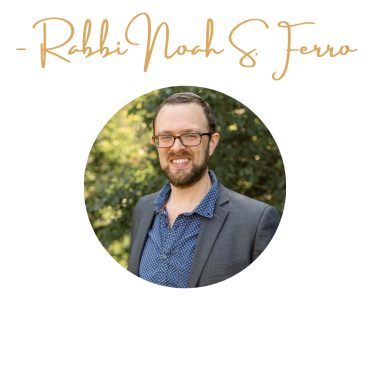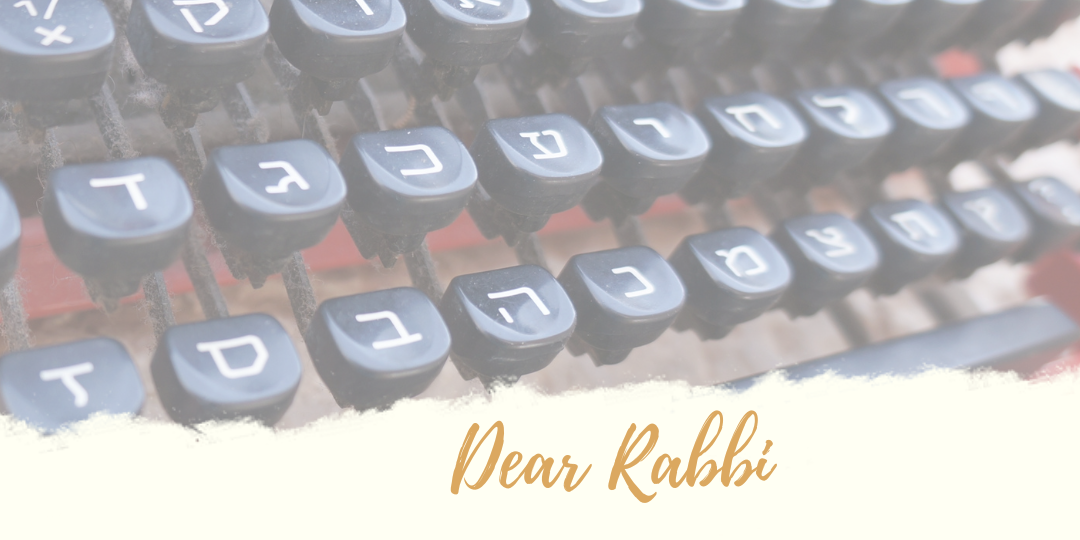DO YOU HAVE A QUESTION FOR THE RABBI? WRITE TO RABBI FERRO AT RABBI@NHS-CBA.ORG WITH THE SUBJECT “DEAR RABBI…”
Dear Rabbi,
In last month’s article, someone asked you a question about the names of God. I want to know something about the names of people.
When I was growing up, it seemed like we always used to call everyone by their father’s Hebrew name. Now I hear us using mothers’ names sometimes too. Is this just a modern cultural thing? And is there any rhyme or reason to it?
-Musing about Monikers
Dear Name,
When you say “call everyone by their father’s Hebrew name,” I’m assuming that you’re talking about calling people to the Torah.
This is true — the established traditional practice was for a man to be called to the Torah by his Hebrew name in its patronymic form (i.e., “[son] son of [father],” like “Ya’akov ben Yitzḥak”). And when we began to show more concern in the Jewish world to the idea of gender egalitarianism, including by calling women to the Torah, we also began to think about ways to modify this practice, like by calling people by the names of both of their parents (e.g., “Ya’akov ben Yitzḥak ve-Rivka”) — using a name with both patronymic (father’s name) and matronymic (mother’s name) components.
When we use both parents’ names, usually the father’s name comes first and the mother’s comes second, but when the father is a Kohen or a Levi, the father’s name will move to the end (e.g., “Moshe ben Yoḥeved ve-Amram ha-Levi”).
But while it is a ḥiddush (an innovation) to include the mother’s name when calling people to the Torah, there is a well-established traditional time to use a person’s mother’s name: when saying a healing prayer for them, like the Mi Sheberakh prayer. For this reason, it is not uncommon to reverse the order of mother and father (e.g., “Ya’akov ben Rivka ve-Yitzḥak” instead of “ben Yitzḥak ve-Rivka”) when we mention a name for a healing prayer.
Today, these sorts of customs vary widely. Some people maintain the traditional practices: patronymic form for Torah (as well as for signing official Jewish documents, like a marriage contract or a divorce decree) and matronymic form for healing prayers. Others will use both names for both, and reverse the order for healing prayers, as indicated above. Still others will use both names for everything, without reversing the order (unless the father is a Kohen or a Levi). In our own synagogue, we typically let individuals determine how they prefer to be called, either in the traditional style or in the more modern, two-parent style.
It also sometimes happens that a child has only one Jewish parent; in these cases, if that child is Jewish (whether Jewish by birth or by conversion), we would typically call them only by the name of the Jewish parent.
With all of the above, it should be noted that there are exceptions. New cultural developments invite us to innovate further as well. The fact that many contemporary Jewish households include two parents of the same gender, or include individuals who identify as neither male nor female, demonstrates that the formula “[child] son/daughter of [father] and [mother]” isn’t one that will work for all situations.
There is also much more to say about names than I can fit in this space. Sometimes people change their Hebrew names, and sometimes people choose to be called according to different names for certain purposes or situations. If you (or another reader) would like to speak to me at greater length about your own name or about the varieties of practices around naming, please let me know.





